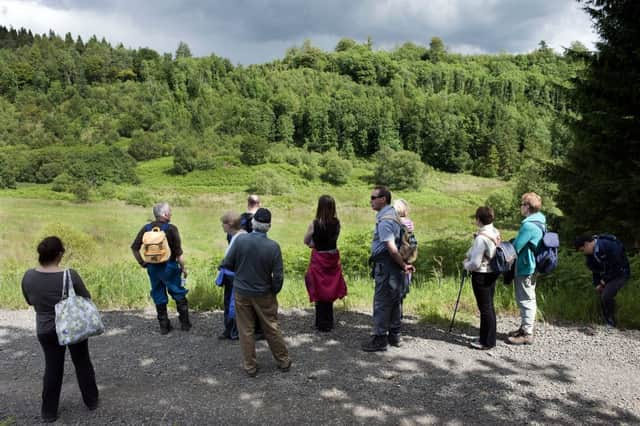Time spent outside in natural world is good for wellbeing


In my work at the John Muir Trust and the International Union for the Conservation of Nature, I often hear people mourn the lack of connection between people and the natural world. It’s widely assumed that the problem is getting worse, and is at least partly responsible for the ecological deterioration of our countryside, which has consequences for us as well as for the environment.
There is nothing new in this discussion. Over a century ago, John Muir wrote eloquently and campaigned passionately to convince politicians and the public that nature was something to be valued and protected rather than conquered and exploited.
Advertisement
Hide AdAdvertisement
Hide Ad“Any fool can destroy trees,” he wrote. “They cannot run away; and if they could, they would still be destroyed. God has cared for these trees, saved them from drought, disease, avalanches, and a thousand straining, levelling tempests and floods; but he cannot save them from fools – only Uncle Sam can do that.”
He persuaded president Theodore Roosevelt to protect the great wild places of the United States – a legacy maintained by president Barack Obama, who recently announced the protection of a further million acres of wilderness.
Assigning a positive value to the wild places of the United States, and encouraging people to experience them for themselves, has been a good move all round. It solved an enduring problem. Today, over 292 million people visit the National Parks in America every year – and for every dollar spent there, the parks generate an estimated four dollars of benefit to the wider economy.
Muir had limited evidence upon which to build his case. His appeal was as much to the heart as to the head. Today, in contrast, we have accumulated a strong body of scientific evidence showing the connection between nature and wellbeing.
In the run up to the last UK general election, a coalition of organisations led by the Wildlife Trusts and RSPB put forward the case for a new Nature and Wellbeing Act. The report convincingly demonstrated the link between the ecological health of our natural environment and the physical and mental health of the general population.
There are grounds for optimism. The Scotland’s People and Nature 2013-14 survey, commissioned by SNH, painted a positive picture of public attitudes towards nature with, for example, 64 per cent ‘agreeing strongly’ that ‘spending time outdoors is an important part of my life’.
The overall figures, however, don’t paint a complete picture. If you are in a low income household, you are considerably less likely to have access to the benefits that nature provides.
Initiatives such as the non-competitive, free of charge John Muir Award play a vital role in helping extend the benefits of nature to everyone. The Award recently celebrated its quarter million milestone. But more important even than the quantity of certificates achieved over the past eighteen years is the breadth of organisations we work with to deliver the Award, including some that are in the frontline of reaching out to those in need.
Advertisement
Hide AdAdvertisement
Hide AdI will leave the final word to an eleven year old John Muir Award participant, part of the latest generation of nature conservationists, reflecting on time he had spent on a hilltop.
“Fresh air comes into your body and pushes all the bad stuff out – the stuff that makes people unwell, like angriness and stress”.
• Stuart Brooks, Chief Executive John Muir Trust and Chair of the UK National Committee of the International Union for the Conservation of Nature Conservation
SEE ALSO